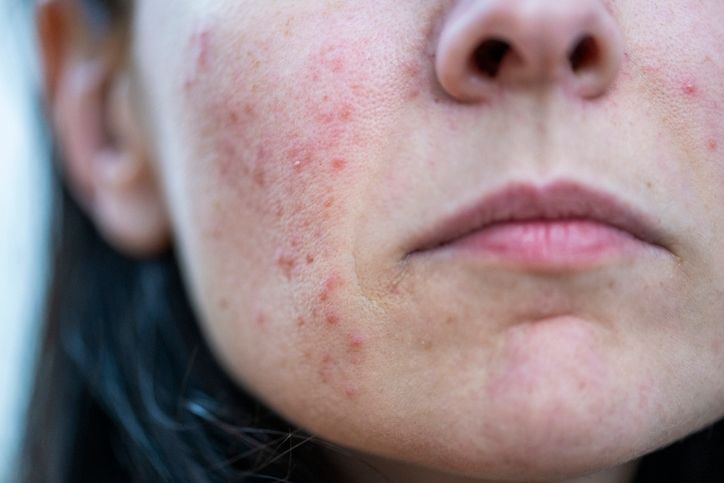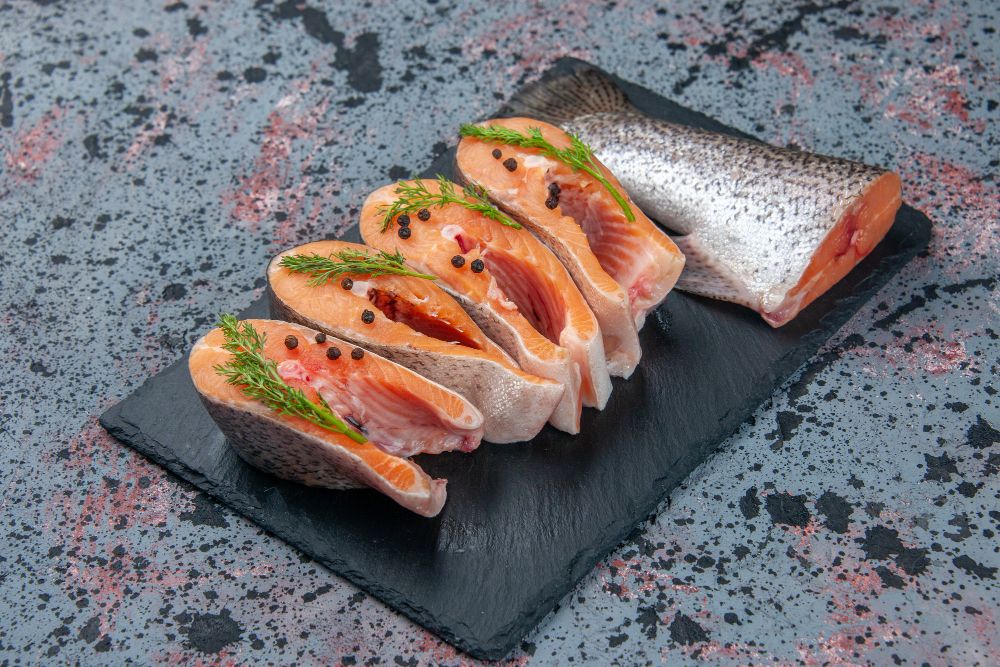
Book Now to Experience
Acne Treatment
1 Minute Self-Registration
Date should not be before minimal date
Author: Sophia Man|Updated: 23 July 2024
Those who say only teenagers get acne could not be more wrong! You are not alone in having adult acne: almost half of the global female population have acne breakouts to various degrees. Compared to adolescent acne, which is expected and considered youthful, adult-onset acne can be embarrassing. Many people in the workforce find that, despite professional attire and makeup, a face full of acne can harm one's image and branding. Studies even show job interviewers often find facial acne and scars distasteful, which puts the interviewee at a disadvantage! Acne is displeasing even out of the work context. Since people often assume acne to be adolescents-only, many attribute adult acne to personal unkemptness and laziness. While cleanliness does play a role in acne formation, you are probably tired of washing your face multiple times a day and still noticing new pimples popping up. At times, you might wonder pessimistically, "Will I have acne for the rest of my life?" Before you give up on having clear skin, let us reassure you that adult acne is entirely regular. Often, breakouts stem from lesser-known and easily-overlooked factors! Read on if you want to: 1. Understand what exactly is happening to your skin during your breakouts, 2. Identify your acne causes and the according solutions, 3. Build an acne-preventing skincare regime, and 4. Learn a test-and-trusted, globally-acclaimed acne removal method!

1
What are Acne and Breakouts?
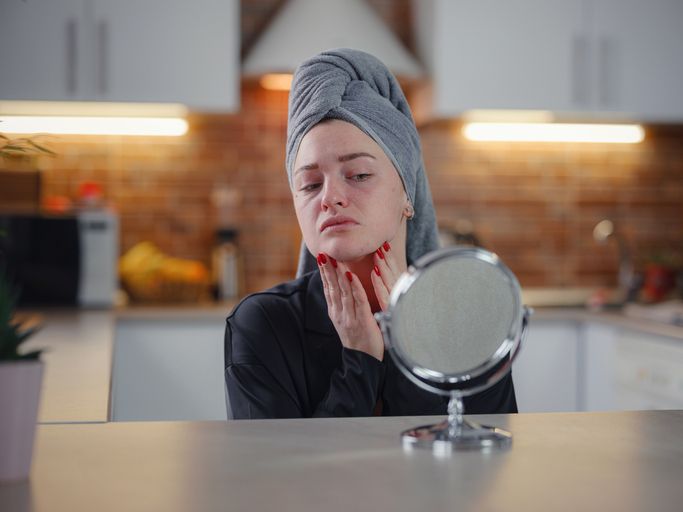
Do you think "facial acne" only means pimples with pus? The truth is acne is a category of skin inflammation symptoms.
Whiteheads (closed clogged pores), blackheads (open clogged pores), acne papules (small, red and tender bumps), acne pustules (inflamed whiteheads), nodulocystic acne (hard, painful and large lumps) and cystic acne (with thick, yellow pus) are all common acne types.
Your oil glands produce sebum daily to moisturize your skin's surface. When there is excess oil production, the oil shows on your skin, thus creating a T-tone shine and oily skin.
Sometimes, the excess oil, sweat, dirt and dead skin cells get trapped in your pores (hair follicles), resulting in white and blackheads.
Too much acne-festering bacteria on your skin can get inside your clogged pores, leading to infections and eventual inflammation, resulting in full-blown acne!

2
Common Causes of Adult Acne
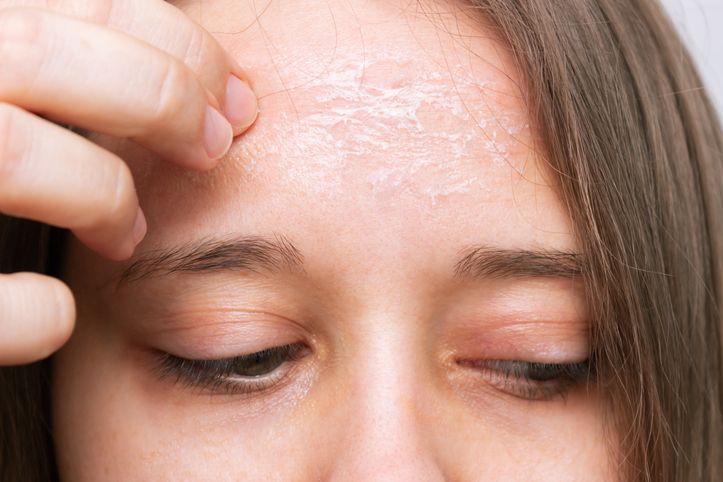
Adult acne breakouts can be frustrating: just when you think your skin has calmed down, another acne pops up on your face. Is there no end to your acne-riddled fate?
Fear not, for all things happen for a reason. By pinpointing what triggers acne for you, you can get rid of acne and regain clear skin in no time!
Genetic Predisposition
It's sad but true: some of us are just born to have more acne than others.
You have a higher chance of having oily skin and adult acne if your parents do so. Thanks, dad and mum!
Scientists have yet to identify a particular gene responsible for acne. However, studies show people with acne-having parents tend to be susceptible to acne-festering bacteria. We all have some of these bacteria on our faces and body. However, too many bacteria can overstimulate the sebaceous glands, causing oily skin, clogged pores and inflammation, resulting in acne.
As of now, you cannot change your genetic makeup. Still, there is hope in your case! By managing other aspects of your life, you can significantly calm your sebum production, which reduces your chance of breakouts.
See what other skin care tips you can take to reduce inherited acne by 90%!
Dry skin
It comes as a shock to many people: Isn't acne an oily-skin-only thing? How come those with dry skin get it too?
Dry skin, while not oily by default, is dying for some moisturization. Some people have such dry skin that it gets shrivelled and dull. In an effort to relieve such discomfort, the oil glands produce oil, which gets blocked within the hair follicles by dead skin cells.
The buildup of oil, dirt and dead skin cells is THE formula for inflammation and eventual acne.
Needless to say, you must moisturize your skin! No, just a bottle of body-and-face lotion won't do: invest in a non-drying cleanser and follow it up by applying hyaluronic acid-based serum and moisturizer.
You should also incorporate niacinamide and vitamin B5 into your skincare routine. These ingredients seep into your innermost skin layer for deep-level hydration and barricade your skin to limit moisture loss.
Shaving and Facial Hair Plucking
Do you enjoy having a smooth, fuzz-free face? Like many, you might use a face-shaving blade or a tweezer to remove unwanted facial hair. While convenient, this habit can give you acne!
Shaving and plucking facial hair can irritate the hair follicles' surface, giving dirt, oil and dead skin cells chances to clog pores, effectively creating a bacteria-fostering environment for inflammation.
To prevent acne while removing facial hair, wish your face beforehand to reduce the number of impurities on your face. Washing your face also softens your follicles, which reduces the chance of irritation.
Before picking up your blade or tweezer, you should lather your facial hair area with face cream or lotion. Then, go with the hair's growing direction when shaving or plucking to avoid injuring your pores.
Rewash your face with a gentle cleanser after hair removal. At last, calm your skin with a hydrating facial lotion.
Skin picking
We are all guilty of acne popping to various degrees. Yet, there is something so satisfying about it!
Still, as fun as it is, you and I both know picking your pimples is sure to worsen acne.
You create a tiny rupture on your follicle when you squeeze or pop a pimple. All sorts of dirt and bacteria can fall from your fingers/blade/tweezer onto the newly-formed open wound, festering into a more severe pimple.
Not to mention that pimple-popping is your one-way ticket to getting a full face of acne scars!
Avoid ruining your face by disinfecting your hands and acne-removal tools beforehand. Don't force it if no pus comes out after applying gentle pressure for a few seconds. As the last step, wash your face and apply facial lotion to avoid inflammation.
Better yet: suppress the urge to pick your skin and leave your acne to calm itself!
Bad Hygiene
Really, it's a no-brain: time and time again, dermatologists preach the importance of washing your face, as a dirty face is a sure way to grow facial acne!
Since oily, dirt and dead skin cells can nurture bacteria, cleaning your face daily is a must to prevent inflammation and eventual breakouts.
Your face is the dirtiest at night after a long day, making nighttime the most critical time frame for washing your face.
There may be some nights when you are too tired to clean your face properly; instead, you fall into bed with greasy, half-melted makeup.
Sadly, your skin is unforgiving of your skincare mishap: it's wishful to think it makes no difference washing your face the next morning. As you sleep, your makeup residuals, sweat and oil settle into your pores, making it impossible to wash them off in the morning.
Therefore, you must maintain a regular face-washing routine. Wash twice daily with the "double-cleansing" method: use an oil-based makeup-removing balm first, followed by a gentle facial cleanser.
Harsh cleansers can dry, irritate and even damage your skin. Your skin will attempt to control the damage by producing more oil, resulting in a vicious breakout cycle. So, you should give up on your current face wash if it significantly dries and tightens your skin or causes tingling and redness.
Comedogenic Facial Products
All makeup products will eventually worsen the skin if you don't wash them off properly. However, comedogenic makeup products have ingredients that easily clog pores.
Oil-based makeups are, though not definitely, more likely to be comedogenic. Wearing these products for long hours daily can make acne worse. You should do well to seek oil-free makeup if you are acne-prone.
Many skin care products also contain comedogenic ingredients. Most of which are thick, moisturizing creams for the winter season.
Common comedogenic ingredients include beeswax, lanolin (sheep fat), coconut oil and dimethicone.
Googling the comedogenic rate of each ingredient on your self-care products can be tiresome, which is why you should utilize online comedogenic ingredient checkers: simply copy and paste your favourite product's ingredient list onto a checker, and see if that product is causing you acne!
Anxiety and Depression
Our mind and body work holistically: when one is unwell, the other is sure to follow. Life challenges such as work, relationships and finance can wreak havoc on your skin.
Stress, anxiety, irritation, and depressive moods can boost the production of glucocorticoids, a common stress hormone.
The hormonal balance increases your sebum secretion, causing inflammation, pore blockage and, eventually, breakouts!
Bilaterally, seeing unwanted acne in the mirror can worsen your mood, which aggravates your breakout and state of mind.
Your mental health, like your physical health, should be your priority. Targeted acne treatment cannot cure stress-induced acne. Instead, taking care of your mental state makes you a happier and healthier person, which, in return, improves your skin quality and clears your breakouts.
Ways to be happier include practising hobbies and to surround yourself with loved ones. Feel free to seek professional help if needed. You can also decompress from a stressful day by practising self-care tips such as meditation, yoga, and journaling.
Unhealthy diet
Are greasy foods and sugary desserts your guilty pleasures? You are not alone in this! But as tasty as they are, they bring weight gain and even breakouts!
Fast foods, such as burgers, pizza, fries, fried chicken and kebabs, are rich in fat. A high-fat diet increases the fat in your blood vessels, including the capillaries connected to your pores. The excess sebum can pool and block your pores, resulting in inflammation and acne eventually.
High sugar intake from foods such as cakes and alcohol can suddenly and drastically boost your blood sugar level, which raises growth hormones. Such hormones stimulate sebum secretion, increasing your risk of follicle blockage and inflammation.
Besides sugary treats, dairy products such as milk and cheese can also increase your growth hormone level and cause hormonal acne.
While it is easy to say, "I will just avoid all of these foods to get rid of acne!" It is easier said than done. Living in Hong Kong inevitably means eating out, ordering deliveries and indulging in processed food once in a while. Having such strict diet limitations can make your daily life very challenging.
Life is also short, so you shouldn't avoid foods that give you joy. Suppressing your craving excessively can also lead to binge eating, which is unhealthy and counteractive.
Instead, you should eat everything in moderation. You can also keep a food journal - this way, you can identify the exact types of food which cause your breakout.
Hormonal Changes
As a woman, your body experiences hormonal fluctuations every month. High chance is you might experience breakouts around menstruation.
Above 60% of women experience menstrual acne. This is because your hormones fluctuate the most from one week before menstruation to during menstruation. This is when menstrual acne takes place.
Lower estrogen levels and progesterone encourage more oil production, leading to breakouts.
Besides your menstrual cycle, being pregnant also affects your hormonal balance, resulting in hormonal acne.
Hormonal medication, most commonly in the form of birth control pills, is also prone to alter your hormonal balance and induce acne.
You can combat menstrual acne by maintaining a balanced diet, working out, and staying hydrated. By staying active and healthy, you speed up your metabolism for faster cell cycling, which helps your acne fade away quickly.
As for pregnancy or medication-related acne, you should visit your dermatologist for safe and gentle acne treatments or medication alternatives.

3
Must-Have Skin Care Ingredients for Acne-Prone Skin
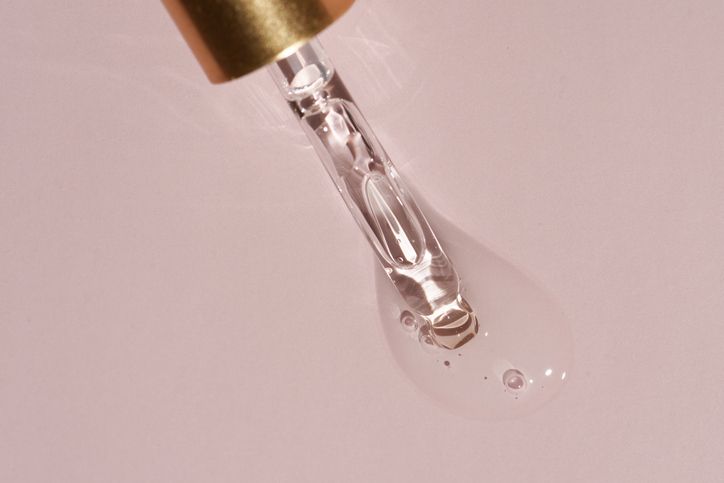
Treating acne requires patience and dedication. You can either handle your acne yourself or opt for the more professional acne-calming methods (i.e. microcirculation and prescription oral acne treatments). Regardless, you must have an acne-targeting skin care regimen to achieve and maintain clear skin!
Build your skincare routine with topical treatments with the following acne-fighting ingredients!
Benzoyl peroxide
Benzoyl peroxide is a staple in an acne-targeting skincare routine.
Dermatologists recommend topical benzoyl peroxide creams for those with moderate acne breakouts.
Benzoyl peroxide can directly reduce acne-festering bacteria, thus limiting the chance of pore infection and inflammation. In addition, Benzoyl peroxide can dissolve impurities covering clogged pores, lowering your risk of future breakouts.
You should ask your dermatologist for a prescription benzoyl peroxide gel or cream. Still, you can find some lower-strength benzoyl peroxide products by some over-the-counter brands.
Benzoyl peroxide is very potent and can cause allergic reactions in some people. So, you should do a patch test before buying your over-the-counter products. Likewise, if you've decided to get prescription creams, your dermatologist should perform the patch test before confirming your prescription.
Bear in mind that you mustn't apply benzoyl peroxide to wounded or bleeding skin surfaces. If you have sensitive skin, you might experience dry skin, skin peeling and a tingling sensation upon using benzoyl peroxide. These side effects are not necessarily harmful, as they could be signs of your skin adjusting to the new products.
However, you should see the doctor if your skin shows swellings, blisters, or breathing difficulty after using benzoyl peroxide.
Retinoid
You may have heard of retinoid or its more common form, retinol. What is this much sought-after skincare ingredient?
Retinoids are derived from vitamin A. You might be familiar with retinoid's own derivant, called retinol. Retinol is weaker than retinoid and is a common ingredient in over-the-counter ageing products.
Topical retinoids can regulate skin cell renewal and encourage collagen production, thus targeting dryness and dead skin cell accumulation. Retinoids can also unclog pores and prevent further pore blockage.
With such phenomenal functions, it's no wonder retinoid has been one of dermatologists' favourite prescriptions for moderate to severe acne!
While there are some over-the-counter retinoid creams and serums, you should visit a dermatologist for a proper prescription.
This is because retinoid is a high-strength ingredient. Many people, especially those with dry or sensitive skin, experience side effects when using retinoids.
Common side effects include redness, itching and tingling, dry and flaky skin, a surge in temporary acne, photosensitive and blistering.
Most importantly, you must not use retinoids, be it oral or topical, if you are currently or planning to get pregnant. Retinoid usage during pregnancy can result in congenital anomalies, aka birth defects, in your infant.
Always follow medical instructions while using your retinoid creams or serum. In addition, you should avoid direct sun exposure right after applying retinoids. You should also stop using other harsh skin care products, which can make your skin more sensitive to retinoids' side effects.
AHA and BHA
Alpha hydroxy acid (AHA) and beta hydroxy acid (BHA) are acidic ingredients commonly found in skin care.
AHA and BHA are chemical exfoliants which help shred dead/old skin cells from the skin's surface.
Peeling off slow-removing dead skin cells unblocks and prevents clogged pores, which gives anti-inflammatory effects, effectively killing off acne before it even exists!
AHA is beneficial for dry, combination-dry and sensitive skin. Besides peeling off old skin, it also prepares the skin to absorb hydrating serum and moisturizer, relieving the skin from forming dryness-induced acne. AHA also reduces wrinkles and discolouration, which are common dry skin concerns.
Common AHAs are glycolic acid, lactic acid and mandelic acid.
Salicylic acid, the most common BHA, is best for oily and combination-oil skin. BHA is oil-soluble, so it can seep through the clogged pore to dissolve the excess sebum. BHA can also calm down the sebum glands and kill off acne-growing bacteria - all of which are typical oily skin concerns!
Still, overusing chemical exfoliants can be too much of a good thing. As the word "exfoliant" implies, you stand to thin and damage your skin's surface by overly stripping it of healthy skin cell layers and natural sebum. The thinned skin becomes more sensitive; the reduced sebum volume also means drier and less protected skin.
As rules of thumb: • Use gentle chemical peeling toner 2 to 3 times per week, or use concentrated chemical peeling serum once weekly. • Thoroughly hydrate and moisturize your skin after using chemical exfoliants. • Use chemical exfoliants at night to avoid direct sun exposure within 8 to 10 hours post-application.

4
Enjoy Non-Invasive and Definitive Results: The Acne Treatment
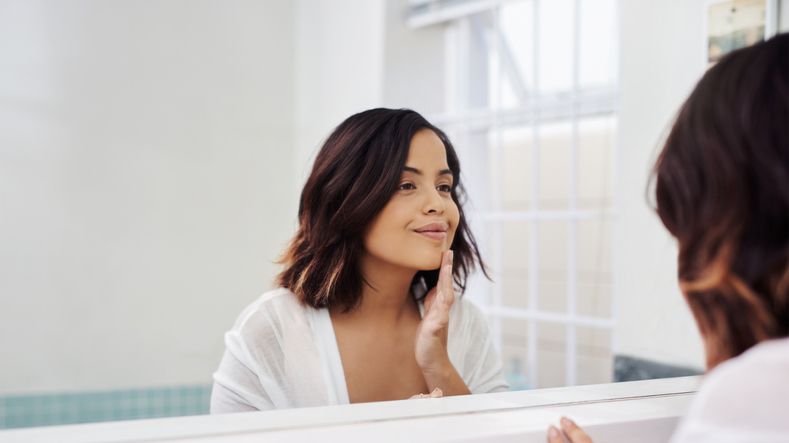
Time and time, science has shown acne formation is due to clogged pores, slow skin metabolism and excess oil. Still, skincare ingredients to date can only partially target these problems.
Sure, they can slowly bring changes over time. But the results are long-awaiting and indefinite: so many users of oral/topical prescriptions have to wait months to see a slight decline in acne.
Many people experience side effects with acne prescription treatments, which can worsen acne and even bring blistering!
Which is why many of them opt for New Beauty's The Acne Treatment!
The Acne Treatment employs dual spiral suction plus drainage technology. Your beautician uses a designated treatment handpiece to exfoliate dead skin cells and drain deep-seated impurities simultaneously. With a fresh, unclogged face, your stubborn acne will subside, and your pores will no longer be inflamed!
After cleaning your face thoroughly, the beautician infuses our exclusive, medical-grade hydration serum into your pores. The potent water molecules can instantly calm your sebum glands, reducing oil production, giving you less shine and preventing breakouts in the future!
With just one treatment plan, you can enjoy long-term clear, dewy and bouncy skin!
Over millions of users worldwide have tested and praised the power of New Beauty's The Acne Treatment. Users of various skin types, including sensitive skin, have approved this high-functioning yet gentle treatment.
The treatment handpieces touch your skin's surface to perform. In no way during the process do they cause incisions or injections. This procedure is completely non-invasive, wound-free, scar-free and pain-free!
Experience this globally-acclaimed acne-removal magic by yourself for FREE! -> The Acne Treatment: Free Trial <-
FAQ
What causes acne in adults?
Like teenage acne, adult acne is caused by excess sebum mixed with dirt, sweat, and dead skin cells stuck in the pores. Such a dirty and greasy environment nurtures acne-growing bacteria, which infects and inflames the pores, resulting in acne.
Is washing my face enough to remove acne over time?
Keeping your face clean can remove excess oil, dirt, and bacteria in your pores, effectively preventing acne breakouts. That being said, facial hygiene is only one of many elements in breakouts. Common factors include bad diet, poor hygiene, emotional stress, comedogenic facial products, skin picking, shaving and more.
What skincare ingredients should I seek in my skincare products?
You should look for chemical ingredients clinically proven beneficial for acne removal. Such skin care ingredients include benzoyl peroxide, retinoid and AHA / BHA. However, These ingredients bring long-waiting and non-transformative results.
How does New Beauty's The Acne Treatment prevent future acne breakouts?
New Beauty's The Acne Treatment employs dual spiral suction plus drainage technology to exfoliate the skin, unclog pores, and drain impurities from the pores. A medical-grade hydrating serum is also infused into the skin to stimulate collagen production. As a result, your current acne will be calmed, and your skin will become dewy, plumped, healthy and acne-proofed.
How should I care for my skin after undergoing New Beauty's The Acne Treatment?
You should maintain a good sun protection habit by using SPF 30+ sunscreen daily and avoiding direct and expanded sun exposure. You should also clean your face regularly with a gentle facial cleanser. Avoid other irritating skin care products for two weeks post-treatment, such as AHA/BHA, whitening, or exfoliating products. You should also avoid photothermal treatments, such as laser, IPL and RF, on your face for two weeks

Book Now to Experience
Acne Treatment
1 Minute Self-Registration
Date should not be before minimal date
Recommended Articles
COPYRIGHT© NEW BEAUTY MANAGEMENT LIMITED 2025. ALL RIGHT RESERVED.

